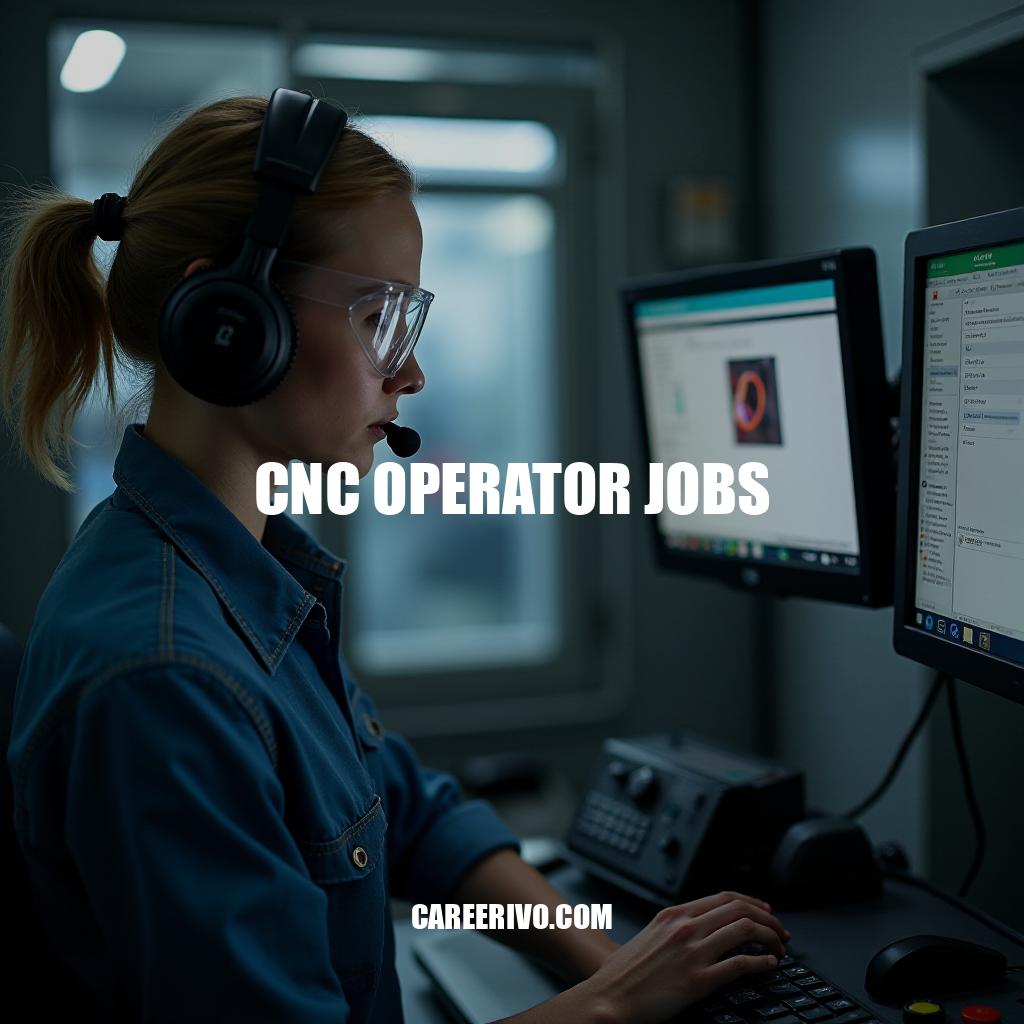
CNC machining has revolutionized the manufacturing industry, and CNC operator jobs are in high demand. As a crucial part of the manufacturing process, CNC operators play a vital role in ensuring the production of precision parts and components. With the increasing use of automation and technology in manufacturing, operator roles require a unique blend of technical skills, attention to detail, and problem-solving abilities.
In this article, we’ll explore the world of CNC operator jobs, including job requirements, salary ranges, and career development opportunities.
Types of CNC Operator Jobs
CNC operator jobs offer a range of career opportunities in the manufacturing industry. Some of the most in-demand CNC operator roles include:
- CNC Milling Operator: Responsible for operating CNC milling machines to precision-cut complex parts and components
- CNC Turning Operator: Skilled in using lathes to shape and finish turned parts with high accuracy
- CNC Programmer: Develops and edits CNC programs to optimize machine performance and part production
- CNC Machinist: Sets up and operates CNC machines, as well as performs routine maintenance and troubleshooting
These roles require a strong understanding of CNC machinery, programming languages, and manufacturing processes. By exploring these career paths, individuals can find opportunities for growth and development in the CNC industry.
People Also Ask Questions
CNC operator jobs have specific job requirements and offer varying salary ranges depending on experience and location. Here’s an overview:
| Job Title | Job Requirements | Salary Range |
|---|---|---|
| CNC Operator | High school diploma, CNC training, basic math skills | $35,000 – $50,000 per year |
| Senior CNC Operator | 2+ years of experience, advanced CNC skills, leadership experience | $50,000 – $70,000 per year |
| CNC Programmer | CNC programming certification, 1+ year of experience, strong math skills | $45,000 – $65,000 per year |
Understanding these aspects can help individuals make informed decisions about pursuing career development opportunities in CNC operation.
How to Become a CNC Operator
To become a successful CNC operator, it’s essential to acquire the necessary CNC training and certification programs. Here are some practical steps to get started:
- Enroll in a CNC training program that covers CNC machining, programming, and operation
- Pursue certification programs such as CNC Machining Certification or CNC Programming Certification
- Develop essential skills required for CNC operation, including:
- Strong understanding of CNC machinery and programming languages
- Attention to detail and precision
- Problem-solving and troubleshooting skills
By following these steps and acquiring the necessary skills and certifications, individuals can increase their chances of success in the CNC industry.
Benefits and Challenges of CNC Operator Jobs
Working as a CNC operator can be a rewarding career, offering job satisfaction and opportunities for career growth. Some benefits include:
- Job satisfaction: Working with precision machinery and creating complex parts can be fulfilling
- Work environment: CNC operators work in a variety of settings, including manufacturing facilities and machine shops
- Career growth: With experience and additional training, CNC operators can move into leadership roles or specialize in specific areas
However, CNC operators also face challenges, such as:
- Physical demands: Standing for long periods and working with heavy machinery
- Technical complexities: Troubleshooting and maintaining complex machinery
- Continuous learning: Staying up-to-date with new technologies and programming languages
By understanding these benefits and challenges, individuals can make informed decisions about pursuing a career as a CNC operator.
Conclusion
In conclusion, CNC operator jobs offer a world of opportunities for those who are passionate about precision and innovation. By understanding the key requirements, salary ranges, and career development paths, individuals can make informed decisions about pursuing a career in this field. Whether you’re just starting out or looking to advance your skills, acquiring the necessary training and certification programs is essential for success.
As a CNC operator, you’ll have the satisfaction of working with precision machinery, creating complex parts, and contributing to the manufacturing industry’s growth. Don’t be intimidated by the technical complexities – with dedication and practice, you can master the skills required to excel in this field. So, take the first step towards a rewarding career as a CNC operator and start exploring the many resources available to help you get started.
Share your thoughts on what drew you to this field or any challenges you’ve faced in the comments below. With persistence and hard work, you can unlock a world of possibilities in the CNC industry.


